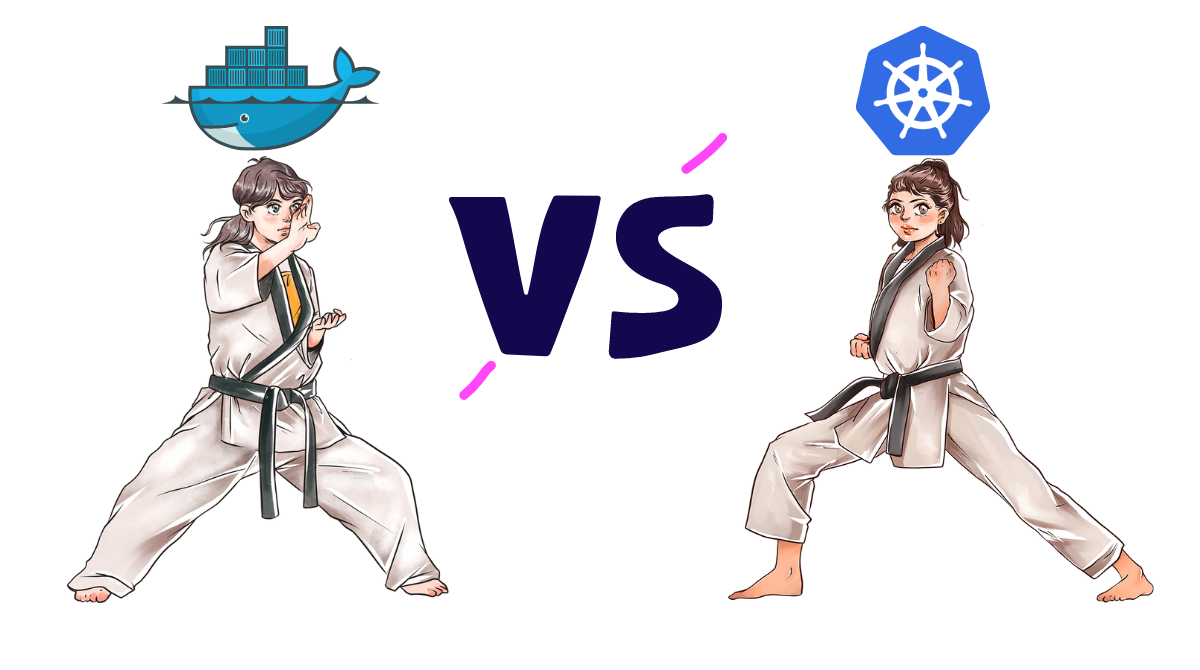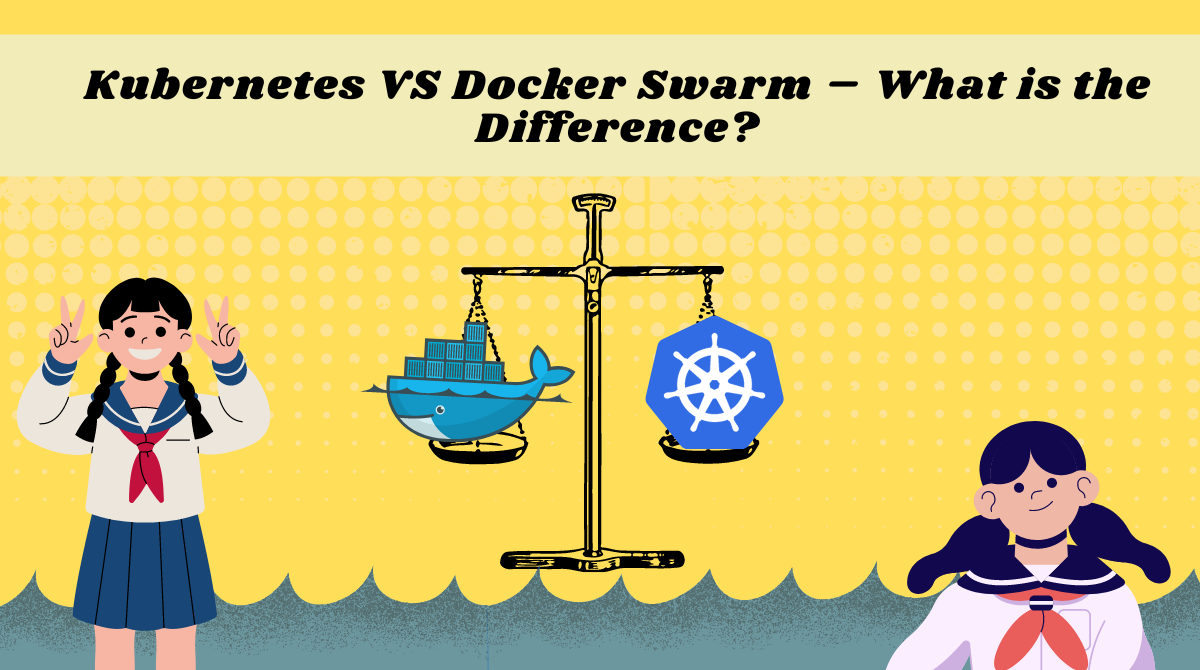Modern businesses are relying on containerization technologies to simplify the process of deploying and managing complex applications.
Containers assemble the necessary dependencies within one package. In this way, you don't need to worry about dependency-related conflicts that may arise in the production environment.
Containers are portable and scalable, but to scale them you'll need a container orchestration tool. A container orchestration tool provides you with a framework to manage multiple containers.
Today, Docker Swarm and Kubernetes are the most popular container orchestration platforms. Both of them have their specific uses and come with certain advantages and disadvantages.
In this article, we will explore both of them to help you establish which container orchestration tool is best according to your requirements.
What is Docker Swarm?
Docker Swarm is an open-source container orchestration platform that is native to Docker. It supports orchestrating clusters of Docker engines.
Docker Swarm converts multiple Docker instances into a single virtual host. A Docker Swarm cluster is generally composed of three items:
- Nodes
- Services and tasks
- Load balancers
Nodes are instances of the Docker engine that control your cluster alongside managing the containers used to run your services and tasks.
Load balancing is also a part of Docker Swarm clusters and it is used to route requests across nodes.
Advantages of Docker Swarm
- Docker Swarm is quite simple to install, which is why it is well-suited for those just jumping into the container orchestration world.
- It is lightweight.
- Within the Docker containers, Docker Swarm provides automated load balancing.
- As Docker Swarm is native to Docker, it works with the Docker CLI. In addition to that, it works seamlessly with existing Docker tools such as Docker Compose.
- Docker Swarm provides intelligent node selection, which allows you to pick the optimal nodes in a cluster for container deployment.
- It has its own Swarm API.
Docker Swarm challenges
Despite its numerous benefits, there are a few considerations.
- Docker Swarm is strongly tied to the Docker API, which limits its functionality as compared to Kubernetes.
- Customization options and extensions are limited in Docker Swarm.
What is Kubernetes?
Kubernetes is a portable, open-source, cloud-native infrastructure tool initially designed by Google to manage their clusters. Being a container orchestration tool, it automates the scaling, deployment, and management of containerized applications.
Kubernetes has a more complex cluster structure than Docker Swarm.
Kubernetes is a feature-rich platform mainly because it benefits from valuable contributions from the global community.
Advantages of Kubernetes
- It has the ability to sustain and manage large and complex workloads.
- It has a large open-source community, backed by Google.
- Being open-source, it offers broad community support and the ability to handle varied, complex deployment scenarios.
- It is offered by all main cloud providers: Google Cloud Platform, Microsoft Azure, IBM Cloud, and AWS.
- It is automated and supports automatic scaling.
- It is feature-rich and has built-in monitoring and a wide range of available integrations.
Kubernetes challenges
Although Kubernetes has a comprehensive feature set, it also has a few drawbacks:
- The learning curve for Kubernetes is steep and it takes specialized knowledge to master Kubernetes.
- The installation process is complex, especially for beginners.
- As the open-source community is quite active, Kubernetes frequently requires careful patching to keep the technology updated without disrupting workloads.
- For simple apps that do not need frequent deployments, Kubernetes is heavy.
Kubernetes vs. Docker Swarm – A comparison

Now that we have covered the advantages and challenges of Kubernetes and Docker Swarm, let’s see how they differ from one another.
The major difference between the platforms is based on complexity. Kubernetes is well suited for complex applications. On the other hand, Docker Swarm is designed for ease of use, making it a preferable choice for simple applications.
Here are some detailed differences between Docker Swarm and Kubernetes:
Installation and setup
Kubernetes is very customizable but complex to set up. Docker Swarm is easier to install and configure.
- Kubernetes: Depending on the operating system, manual installation can differ for each OS. If you are using services from a cloud provider, installation is not required.
- Docker Swarm: Docker instances are typically consistent across operating systems and thus fairly simple to set up.
Load balancing
Docker Swarm offers automatic load balancing, while Kubernetes does not. However, it is easy to integrate load balancing through third-party tools in Kubernetes.
- Kubernetes: Services are made discoverable through a single DNS name. Kubernetes accesses container applications through an IP address or HTTP route.
- Swarm: Comes with internal load balancers.
Monitoring
- Kubernetes: Kubernetes has built-in monitoring along with third-party monitoring tools integration support.
- Docker Swarm: In contrast, there are no in-built monitoring mechanisms in Docker Swarm. However, Docker Swarm supports monitoring through third-party applications.
Scalability
- Kubernetes: Provides scaling based on traffic. Horizontal autoscaling is built in. Scaling in Kubernetes involves creating new pods and scheduling them to nodes with available resources.
- Docker Swarm: Offers autoscaling of instances quickly and on-demand. As Docker Swarm deploys containers quicker, it gives the orchestration tool faster reaction times that enable on-demand scaling.
Which platform should you use?
Both Kubernetes and Docker Swarm serve their particular use cases. Which one is best for you depends on your or your organization's current needs.
When starting, Docker Swarm is an easy-to-use solution to manage your containers at scale. If you or your company does not need to manage complex workloads, then Docker Swarm is the right choice.
If your applications are critical and you are looking to include monitoring, security features, high availability, and flexibility, then Kubernetes is the right choice.
Wrapping up
In this article, we learned about Docker Swarm and Kubernetes. We also explored their pros and cons. The choice between the two technologies is highly subjective and based on the desired results.
I hope you found this tutorial helpful. Thank you for reading till the end.
What’s your favorite thing you learned from this tutorial? Let me know on Twitter!
You can also read my other posts here.

